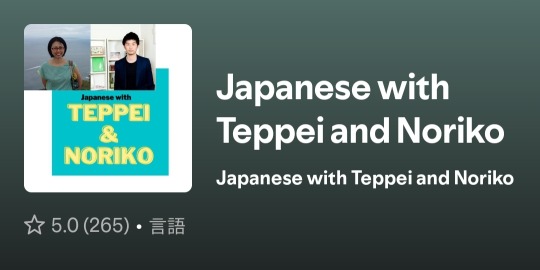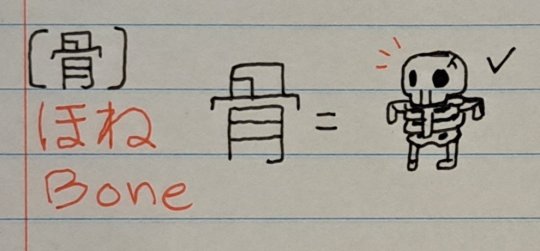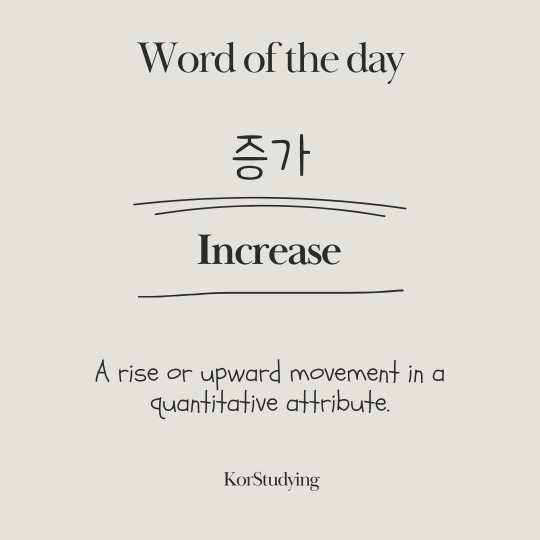Hi! I’m currently learning languages during my free time. Join me as I experience many failures and victories. Maybe even help me out along the way?
Don't wanna be here? Send us removal request.
Text
There is no shame in never becoming fluent in your target language(s). Learning a new language even a little bit is great. Having the ability to communicate even a little bit is great. Learning about the culture(s) is great. You're doing great. Enjoy the experience.
7K notes
·
View notes
Text
세번 죽은 자의 맹세 - The Oath of the Thrice-Dead

늙은 신들은 세 번 죽었던 자들에게 다르게 말을 건넨다.
[The old gods speak differently to those who've died three times.]
그들의 속삭임은 내 혀 위에서 쇠와 재처럼 느껴지고, 볼바가 나를 되살리는데 사용한 약초만큼이나 쓰다. 그녀가 죽음의 강변에서 나를 불러내며 주문을 외울 때 그녀의 뼈로 짜여진 머리땋은 주사위처럼 딸각거렸다. 전투의 흔적으로 가득하고 겨울 늑대처럼 회색빛을 띈 내 수염도 신들이 안절부절못할 때면 내 피부 아래서 맥동치는 룬 문자들을 감출 수는 없다.
[Their whispers taste like iron and ash on my tongue, bitter as the herbs the völva used to bring me back, her bone-woven braids clicking like dice as she chanted me from death's shores. My beard, thick with battle-marks and grey as winter wolves, can't hide the runes that pulse beneath my skin when the gods grow restless.]
아홉 개의 길이 만나는 레이븐크로스에 서서, 신들이 약속했던 징조를 기다린다. 까마귀 셋이 맴도는 건 전쟁을 의미한다. 일곱은 죽음을 뜻한다. 오늘, 나는 열셋을 세었다. 옛 마법이 얼어붙은 벌꿀술처럼 내 혈관을 타고 흐르며, 동시에 태우고 보존한다.
[I stand at Ravencross where nine roads meet, waiting for the sign the gods promised would come. Three ravens circling means war. Seven means death. Today, I counted thirteen. The old magic runs through my veins like frozen mead, burning and preserving all at once.]
첫 번째 죽음은 칼에 의해 왔다—반역자의 손에 들린 왕의 검이었다. 두 번째는 바다에서 왔다—아직도 내 꿈에서 나를 괴롭히는 바다뱀의 배 속에서. 그리고 세 번째—세 번째 죽음은 까마귀들 자신이 준 선물이었다, 그들의 부리로 내 영혼을 오딘의 전당에서 데려왔다.
[The first death came by sword—a king's blade in a traitor's hand. The second by sea—in the belly of a serpent that still haunts my dreams. And the third—the third death was a gift from the ravens themselves, their beaks carrying my soul back from Odin's halls.]
내 쇠사슬 갑옷이 무겁게 짓누른다. 그것은 쓰러진 왕들의 검으로 만든 고리들로 이루어져 있다. 내 허리춤의 검은 죽은 자들의 이름을 속삭인다—내가 두 번째로 부활한 뒤로 생긴 습관이다. 걸어다니는 죽은 자들이 아직도 자신들의 야를의 부름에 응답하는 이 땅에서, 나는 완전히 다른 존재다.
[My mail shirt weighs heavy, its rings forged from the blades of fallen kings. The sword at my hip whispers names of the dead—a habit it picked up after my second resurrection. In these lands, where the walking dead still answer their jarls' calls, I am something else entirely.]
"그림울프!" 그 목소리가 사거리를 가로질러 울려 퍼졌다. 젊지만 힘이 실린 목소리였다. 새로 등장한 자들 중 하나다. 한 여름의 약탈로 왕관을 쓸 자격이 있다고 자처하는 이 자칭 야를들 중 하나지.
["Grimulf!" The voice carries across the crossroads, young but weighted with power. One of the new ones, these self-proclaimed jarls who think a summer of raids makes them worthy of the crown.]
나는 빙하처럼 천천히, 운명처럼 필연적으로 돌아선다. 그 소년 족장이 삼십 명의 전사들과 함께 서 있다. 그들의 방패에는 늑대와 용들이 그려져 있다. 그들은 반원을 그리며 넓게 서있고, 무기들이 가죽 칼집에서 빠져나오며 쇳소리를 낸다. 그들은 내가 무엇인지 모른다—신들이 나를 어떤 존재로 다시 만들었는지.
[I turn, slow as glaciers, inevitable as fate. The boy-chief stands with thirty warriors, their shields painted with wolves and wyrms. They spread out in a half-circle, steel rasping against leather as weapons cleared sheaths. They don't know what I am—what the gods rebuilt me to be.]
"네 머리에 걸린 현상금이면 내 전당을 십 년 동안이나 먹여 살릴 수 있을 거다," 그가 외친다. 수적 우세와 젊음에서 빌려온 용기로.
["The bounty on your head would feed my hall for ten winters," he calls out, courage borrowed from numbers and youth.]
나는 나를 처음 죽음으로 이끈 흉터를 만진다—달빛 아래서도 여전히 빛나는 목을 가로지르는 은빛 선. "네 할아버지도 그 현상금을 차지하려 했었지," 내가 그에게 말한다. "그는 이제 까마귀들의 먹이가 되었다."
[I touch the scar that killed me first—a silver line across my throat that still gleams in moonlight. "Your grandfather tried to claim that same bounty," I tell him. "He feeds the ravens now."]
"내 할아버지는 혼자였지. 난 삼십 명을 데려왔다."
["My grandfather was one man. I bring thirty."]
전투로 거칠어진 내 얼굴에 미소가 번진다. "그럼 공평한 싸움이 되겠군."
[A smile cracks my battle-worn face. "Then it will be a fair fight."]
내 피부 아래의 룬 문자들이 빛나기 시작한다—힘을 상징하는 우루즈, 승리를 상징하는 티바즈, 보호를 상징하는 알기즈. 늙은 신들은 잔인한 주인일지 모르나, 그들의 도구는 잘 무장시킨다.
[The runes beneath my skin begin to glow—Uruz for strength, Tiwaz for victory, Algiz for protection. The old gods might be cruel masters, but they arm their tools well.]
첫 번째 전사가 도끼를 높이 들고 돌진해온다. 시간이 겨울의 꿀처럼 천천히 흐른다. 나는 운명의 실—뷔르드—이 거미줄처럼 각각의 남자들 주위에서 반짝이는 것을 본다. 내 검이 수세기의 정확함으로 움직이며, 그 실들을 하나씩 끊어낸다.
[The first warrior charges, axe held high. Time slows, thick as honey in winter. I see the threads of fate—wyrd—shimmering around each man like spider's silk. My blade moves with the precision of centuries, splitting those threads one by one.]
피가 사거리를 물들인다. 내 검이 고대의 노래를 부르고, 각각의 일격이 그들의 최후를 알리는 서사시의 한 구절이 된다. 그들은 너무 늦게서야 신들이 왜 나를 세 번이나 되살렸는지를 깨닫는다.
[Blood paints the crossroads. My blade sings the ancient songs, each strike a verse in the saga of their ending. They learn, too late, why the gods chose to bring me back three times.]
소년 족장이 마지막으로 쓰러진다. 그의 어린 눈에는 그를 구하기엔 너무 늦은 깨달음이 서려있다. 죽어가며, 그는 내 진실을 본다—까마귀의 표식들, 죽음의 룬 문자들, 내 눈빛 속 시대의 무게를.
[The boy-chief falls last, his young eyes wide with the revelation that comes too late to save him. As he dies, he sees the truth of me—the raven-marks, the death-runes, the weight of ages in my gaze.]
"당신은 어떤 종류의 드라우그입니까?" 그가 입술 사이로 피를 흘리며 속삭인다.
["What manner of draugr are you?" he whispers, blood bubbling between his lips.]
"드라우그가 아니다," 내가 그가 받을 자격보다 더 부드럽게 말한다. "인간들이 맹세를 저버리는 것에 ��친 신들이 만들어낸 존재지."
["Not draugr," I tell him, gentler than he deserves. "Something the gods made when they grew tired of men breaking their oaths."]
나는 그의 망토로 검을 닦는다—붉은 양모가 더욱 붉어진다. 까마귀들이 내려앉고, 그들의 잔치를 갈망한다. 이 새들은 나를 알아본다. 그들은 전에도 내 살점을 맛보았었지.
[I clean my blade on his cloak—red wool becomes redder. The ravens descend, eager for their feast. They recognize me, these birds. They've tasted my flesh before.]
각각의 죽음은 나에게 진실을 가르쳤다: 첫 번째는—충성심은 얻어야 한다는 것, 두 번째는—운명은 속일 수 있다는 것, 그리고 세 번째는—신들의 경고는 피로 쓰여진다는 것. 언제나 피로.
[Each death taught me a truth: the first—that loyalty must be earned; the second—that fate can be cheated; and the third—that the gods' warnings are written in blood. Always in blood.]
3 notes
·
View notes
Text
Phones in Japanese
Some vocabulary for phones in Japanese.

携帯電話 けいたいでんわ mobile phone, cell phone
携帯 けいたい mobile phone, cell phone (abbreviated)
スマートフォン smartphone
スマホ smartphone (abbreviated)
電話番号 でんわばんごう phone number
シムカード・SIMカード SIM card
(携帯) メール (けいたい) メール text message (usually just メール)
通話 つうわ phone call
データプラン data plan
契約 けいやく contract
適法契約 てきほうけいやく legal contract
保証期間 ほしょうきかん warranty period
分割払い ぶんかつばらい installment payment plan
プリペイド式携帯電話 プリペイドしきけいたいでんわ prepaid mobile phone
データ量上限 データりょうじょうげん data cap
ローミング roaming
モバイルネットワーク事業者 モバイルネットワークじぎょうしゃ mobile network operator
ネットワーク受信エリア ネットワークじゅしんエリア network coverage area
サービス状況 サービスじょうきょう service status
サービス停止 サービスていし service outage
セルラーネットワーク cellular network
ワイヤレスブロードバンド wireless broadband
ワイファイ Wi-Fi (usually written as Wi-Fi)
337 notes
·
View notes
Text
ways to say "only", "just" in Japanese
When I started learning Japanese, I quickly discovered that “only” translates to だけ (dake). Soon after, I learned about しか (shika) and then ばかり (bakari). This led me to wonder how many ways there are to express the idea of "only" or "just" in the Japanese language. I began exploring the fascinating world of adverbs that convey limitation or exclusivity, each with its own specific nuance.
Here are some of the terms I’ve discovered (which I may continue to expand upon):
だけ (dake): Strongly emphasizes exclusivity, meaning that nothing else is included or considered. Example: 水だけください。 (Please give me only water.)
しか (shika) (used with a negative verb): Often conveys a sense of disappointment or limitation, implying that there’s nothing but the mentioned item, often with a sense of restriction. Example: 私は日本語しか話せません。 (I can only speak Japanese.)
ばかり (bakari): Suggests the dominance or prevalence of something, often with a sense of excess or monotony and a negative nuance. It does not imply strict exclusivity. Example: お菓子ばかり食べている。 (I’m only eating snacks.)
ばかし (bakashi): A casual variant of ばかり, used mostly in spoken language. It conveys a similar meaning but carries a more informal tone. Example: 遊んでばっかしいる。 (He’s only playing.)
のみ (nomi): Used in formal or written contexts, conveying exclusivity. It can sound elegant and refined. Example: 本日のみ有効です。 (Valid only today.)
ばかりか (bakari ka): This expression expands the meaning by introducing additional information, indicating more than just "only." Example: 彼は優しいばかりか、面白いです。 (He is not only kind but also funny.)
だけしか (dake shika) (used with a negative verb): This term combines だけ and しか, emphasizing strong exclusivity when used with negative constructions. Example: これだけしかない。 (There is only this.)
こそ (koso): Indicates that the highlighted item is particularly special or the best choice, often implying that nothing else can compare. Example: 今日こそ勉強する。 (Today, of all days, I will study.)
たった (tatta): Implies that an amount is minimal and often inadequate, highlighting a sense of limitation. Example: たった一人で旅行した。 (I traveled with just one person.)
わずか (wazuka): Emphasizes a minimal quantity or degree, often with a sense of surprise. Example: わずか10分で終わった。 (It only took 10 minutes.)
ほんの (honno): Indicates a small or trivial amount, often used to downplay something. Example: ほんの少しだけ食べた。 (I ate just a little bit.)
に限る (ni kagiru): This expression is used to convey that something is the best or only suitable choice for a situation. Example: 夏はアイスクリームに限る。 (Ice cream is the best for summer.)
だけでなく (dake de naku): Similar to ばかりか , this phrase is used to express that there’s more than just one thing happening. Example: 彼女は賢いだけでなく、優しいです。 (She is not only smart but also kind.)
単に (tan ni): Indicates simplicity; often used to clarify or explain something in a straightforward manner. Example: 単に冗談だよ。 (It’s just a joke.)
あくまで (akumade): Suggests that something is true only to a certain extent or in a specific context. Example: あくまで私の意見です。 (This is just my opinion.)
たかが (takaga): Often carries a dismissive connotation, suggesting that something is not very important. Example: たかが試験一回でどうなるものか。 (It’s just one exam; it won’t change much.)
I love discovering all these subtle differences and nuances, even if it can be frustrating at times. If you know of any more, please share!
968 notes
·
View notes
Text
here are a few podcasts I listen to weekly for practice!

Japanese with Teppei and Noriko
short, concise episodes covering various topics! easy to follow along!

Let's Learn Japanese from Small Talk
longer more detailed episodes with very casual Japanese! they explain some of the vocab they use while speaking (especially slang) and have a vocab list at the end that they go over with a link to read along!

Japanese with Kanako
great for shadowing practice with a few listening exercises mixed in. perfect if you are using the genki series!
what are some podcasts you like to listen to? 教えてください!😊
935 notes
·
View notes
Text
Kanji of the day 15/3/25
❁併
Meaning: join, get together, collective
Kunyomi: あわ
併せる (あわせる): to match (speed/rhythm) / to join together
音楽に併せて踊った。
Onyomi: へい
合併 (がっぺい): merger, amalgamation, union
東京銀行と三菱銀行が合併した。
併行 (へいこう): going side-by-side, running concurrently
この道路は川と併行している。
併合 (へいごう): annex
その帝国は全ての小国を併合した。
❁侵
Meaning: encroach, invade
Kunyomi: おか
侵す (おかす): to invade/to infringe/to afflict
自然はあらゆる領域で侵されている。
Onyomi: しん
侵略 (しんりゃく): invasion
侵略から街を守る。
侵攻 (しんこう): invasion
侵害 (しんがい): infringement, invasion (of privacy)
他人の私事を侵害してはならない。
侵入 (しんにゅう): invasion, trespass
泥棒は壊れた窓から侵入した。
不可侵 (ふかしん): inviolability, sacredness
❁仰
Meaning: look up, revere
Kunyomi: あお
仰ぐ (あおぐ): to look up (to), to revere / to depend on
彼女は彼を師として仰いでいる。
仰向け (あおむけ): facing upwards
仰向けにねこるんだ。
Onyomi: こう
信仰 (しんこう): religious faith, belief, creed
キリスト教を信仰しています。
❁俗
Meaning: custom, worldliness
Kunyomi: ぞく
俗語 (ぞくご): colloquial language, slang
通俗的 (つうぞくてき): popular, commonplace
民俗 (みんぞく): folk customs
❁佐
Meaning: help, assistant
Onyomi: さ
補佐 (ほさ): aid, help
大佐 (たいさ): colonel
少佐 (しょうさ): major
3 notes
·
View notes
Text


I just realized that the kanji for bone, 「骨」, looks like a little skeleton fella, and I can't get over it...
50K notes
·
View notes
Text
Korean Slang을 좀치네요~
A casual phrase that was been around for a while
뭐뭐.. “좀 하다”
“Done a bit of this / Dabbled in / Done this a bit in my day”
Simply put, it is a playful way of saying someone has done something quite a bit or is pretty good at something. Which is why it’s generally used with the ~네(요) or 거든(요) grammar endings.
For example
“야 너 롤 해??”
“Do you play LoL (League of Legends)?”
“응, 나 좀 하지”
“Yeah, I play a bit”
But this has changed from 하다 (To do) to 치다 (To play a sport or instrument) but still can be used in everyday context.
So instead of saying “너 베이킹 잘 하네!”
“You’re pretty good at baking!”
You can say
“와아, 이 빵 잘 구웠네. 너 좀 치네”
“Woah, you baked this bread so well. Guess you’re pretty good at baking”
As always, it’s not a direct translation, but you get the gist of it.
이제 구독자분들도 한국어를 좀 치시네요~
(Now you (the readers) know a bit of Korean too)
342 notes
·
View notes
Text
I can’t be the only one who gets translation induced headaches XD
Specifically from trying to translate something from a song. And the the direct translation sounds so wrong. But every way you try to reconstruct it it’s wrong. The perspective is wrong, you have to add too many words that weren’t there originally. You can’t find a good substitute for this word but if you use the direct one it sounds clunky. And at this point you aren’t even sure if it actually sounds clunky or if you’ve just been in language limbo for too long to even recognize a good sentence. Etc etc. and the worst part is that the original is so succinct and elegant. But in the second language it cannot be if you want to keep the same verbiage. Either way, it won’t be close enough to the original but it will sound natural, or it will sound odd but it will be close. AOUGH
I love it though. It’s like a fun puzzle for my brain:)
11 notes
·
View notes
Text
익숙하다 - to get used to
결국 - in the end, finally
취업하다 - to get a job
국내 - the interior of a country
제품 - a manufactured product/s or good/s
비교 - comparison
인정 - acknowledgement, approval
영향 - influence, effect
서로 - mutually, each other
안부 - well-being, tidings
솟아오르다 - to soar (upwards), fly up
51 notes
·
View notes
Text
you would think my attempt at learning multiple languages at once would lead me to a path of enlightenment and wisdom but in reality I'm just one step away from totally losing my mind and I can't devote myself to a single language because it gets too boring
350 notes
·
View notes
Note
Hi ! Do you have any korean youtubers to recommend ?
P.s I mean youtubers that speak korean in their videos.
Regardless thanks for answering!
Hi! Thanks for your patience. I don't watch a ton of Korean YouTubers, but I do know a few! I like watching makeup YouTubers like ANDA and Hyojin Cho because their tutorials involve a lot of talking and their videos have subtitles. Makeup tutorials are especially helpful in my opinion because you can see what they are explaining; you can match their words to their actions even if you're not sure what those words mean.
I also occasionally watch some Korean ASMR because I think they can be good sources of natural spoken Korean, although I know not everyone enjoys ASMR lol. I like Judy ASMR and Latte ASMR, but just type in "Korean ASMR" and you'll get a ton more.
I don't super watch many Korean YouTubers that have multiple people in them (so that you can hear actual conversation), but there are some channels that I know of, like kizzle and Hi-teenager (although Hi-teenager's videos are kind of uncomfortable to watch--take one look at their thumbnails and you'll understand lmao).
If you're a K-pop stan, a lot of bands put out vlogs and variety shows. I sometimes watch EN O'CLOCK by Enhypen, which is nice for hearing natural conversation.
Those are some options I've got! Feel free to leave a comment with any other YouTubers out there :) Thanks for the question! 화이팅!
111 notes
·
View notes
Text
*. 오늘의 연습 .* 1. 저는 밥하고 김치를 먹고 싶었지만 마트에는 없었어요. 2. 공원까지 민지 언니와 같이 걸어요. 3. 누가 고양이를 좋아하지 않아요? 4. 저는 이 편지를 수현 오빠에게 받았어요. 5. 고양이가 아주 피곤했어서 한참 잤어요.
4 notes
·
View notes



